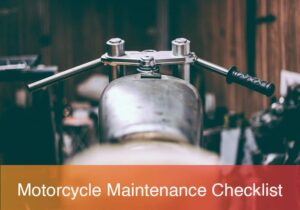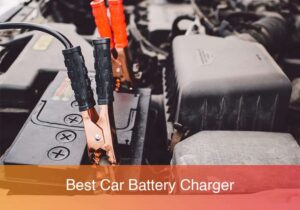Car Maintenance: Car owners have different reasons for owning a vehicle. Regardless of the reason to own it, the important need of the hour is to treat it as a valuable asset and maintain it accordingly so it is available for use for a longer time. One of the major benefits of keeping your car in a tip-top condition by following the car maintenance is that you will be able to derive the benefits from it in the desired manner for a prolonged period. It’s a two-way street: the more you care for your car, the more you will gain out of your ownership of it.
If the above reason sounds good enough to you, then consider adding the following elements on your car maintenance checklist.

The Benefits of Car Maintenance
There are numerous reasons for employing the best practices in maintaining a car. While the benefits of following a Car Maintenance Checklist and sticking with it for a long time constitute a long list, here are some ways in which it provides you with an advantage.
1. Enhanced Safety of your Car:
By prioritizing your car maintenance, you will see an improvement in the efficiency of your car. The proper functioning of all the important components of a car is closely related to its safety. If you are one of those car owners who use a car daily, you may want to do everything possible from your end to ensure that both and your vehicle are safe. To ensure it, you need to make sure that the brake system, the drive belts, tires, and other important components of your car are in working condition.
2. Boosts the Performance of Your Vehicle:
Due to prolonged use, some parts of your car are exposed to the danger of developing wear and tear. Emphasizing regular checks of those components is a smart way of verifying that none of those components would fail in the time of need. When you drive your car, it components work in tandem. Adhering to your car maintenance Checklist will assist you in keeping all the parts in functional mode, thereby boosting the performance of your four-wheeler.
3. Saves you Money on Costly Repairs:
Regardless of the amount of money you have to burn, you may want to save as much money as you can on repairs. Generally, car repairs are considered to be expensive. And the damage to an expensive part of a car translates into spending a hefty amount of money to have it repaired from a mechanic at a garage. If your car is expensive, the cost of servicing it would be even more and can go up to several thousands of dollars. Wondering how you can save your money on costly repairs? Implementing your car maintenance is your best bet to do so.
4. Fetches you More Money via Resale:
No matter how good the condition of the features of your current car is, chances are you may want to get a new car at some point in time in the future. To keep the costs of buying a new car down, you would like to sell off your used car. This is precisely where your Car Maintenance Tips can come to the fore. By keeping your used car in a mint condition, you will get a good resale value which would make things simple and easy for you to get a new car.
Below is the List of 11 Excellent Car Maintenance Tips
The importance of car maintenance goes beyond a regular checkup. How a car owner maintains their car tells a hundred words about how much they care for their vehicle. While there are several tips to maintain your car that you can add to your car maintenance Checklist, here are the top aspects on which you must focus on your effort to monitor the condition of your car regularly.
1. Do a Thorough Inspection Regularly:
The first step to car maintenance begins with a thorough or comprehensive inspection. The idea should be to investigate and confirm that all the parts of your car are in working condition. Refer to the user manual to find out more about the parts that you should investigate while performing this step. If required, do not hesitate to go for professional help. After all, it is a matter of your safety. “Better safe than sorry”, as the saying goes.
2. Check and Change Engine Oil and Transmission Fluid:
One of the vital requisites of shielding your car engine from damage is to keep it protected from corrosion. In the beginning, engine oil does the job for some time until it wears out. When you use the car for a long time, dirt and dust that keep accumulating in the course of your usage are likely to reduce the efficiency of your car. This can hurt your chances of achieving good mileage. If you wish to achieve a top mileage, consider replacing the engine oil after the of its cycle. The same holds for transmission fluid as well. For more details, refer to the manual.
3. Keep the Battery Charged and Connectors Clean:
The battery installed on your car plays an important role when the engine works as well as when it shuts down. While in the former case, it helps in running all the fancy electronics, it regulates the voltage of the alternator when the case of the latter. The electrical systems would cease to function if the battery runs out of charge. So, make a point of charging the battery of your car to an optimum level.
With a dead battery, the engine of your car would not start no matter how hard you try to start it. Also, ensure that the connectors are clean. Verify it manually that there is no accumulation of dirt or dust. Take some time out in your car maintenance schedule to remove the excess dirt and dust if required.
4. Change Broken or Dim Lights:
While bright lights can give you better visibility when it is dark, dim lights result in a diagonally opposite outcome. Unfortunately, a majority of car owners tend to overlook the importance of this aspect in their car maintenance schedule. As a result, they either end up being a victim of an accident or hurt others while driving their car on the road. Pay attention to the lights installed on your car and if required, consider changing it for your safety as well as the safety of others in the street. When replacing a glass bulb, avoid the direct contact of your body to its surface to be on the safe side.
5. Replace Spark Plugs:
If you experience a problem in starting your vehicle, find it difficult to accelerate when you feel the need for it or find that your engine misfires all of a sudden without an apparent reason, be certain that you need a new set of spark plugs for your car. Spark plugs can either be based on copper or iridium. In case the spark plug attached to your car corresponds to the former, you should get a new one after covering 30,000 miles in your car. Spark plugs that are made of iridium have the capability of offering optimum performance even as you cover 100,000 miles. You just need to move a few bolts to replace spark plugs in your vehicle. Still, it is recommended that you should refer to the manual to do it correctly. This is a helpful tip, especially for beginners.
6. Substituting Air Filter and Oil Filter:
The benefits of a clean air filter & also oil filter in a car include prolonged engine life, strong fuel efficiency, and reduced emissions. Besides, the amount of money that you can save on mending the damages to an engine due to an issue with these aspects can be huge. So, monitor the condition of the air and oil filter of your car from time to time and consider replacing them as and when needed.
7. Installing New Windshield Wipers for a Change:
Windshield wipers come in handy during rainstorms. They clear the moving rainwater on the surface of the glass to offer better visibility. On the other hand, cracked and damaged wiper blades can do considerable harm to your glass. Check the blades the rubber of the windshield wipers installed on your car for all potential damages. If needed, do not hesitate to replace them.
8. Examine Tire Pressure and Tread Depth:
Every car has a recommended pressure for its tires. In the case of your car, you can find the details of this recommendation on the manual. Though it is recommended that you should do it at least once in a week, doing it daily will result in a fruitful outcome. Why should you constantly monitor the tire pressure of your car?
The simple answer to this question is that it is related to the level of your handling and comfort. Plus, it also has a bearing on the amount of money that you are likely to spend on the fuel for your vehicle. Tire treads also play an important role in enabling your car to move on roads in all weather conditions. By default, they are made of rubber to suit even the inclement weather conditions. Do not forget to include this element on your overall list of car maintenance for beginners.
9. Perform Radiator Flush:
Flushing the radiator of your car periodically would be of great help to the cleaning system of your vehicle. Apart from removing the scale and rust deposit, it also provides lubrication to the water pump. It removes all types of contaminants that pose a threat to bring the cooling system of your car to a standstill. Owing to this reason, most owners attach a great deal of importance to it among other
10. Switching to New Brake Pads:
Functional brake pads are of utmost importance for a clean stop when you drive your car on a road. When you apply the brakes, brake pads halt your four-wheeler by applying friction against a drum or a metal disc. Depending on your manner of driving your car and the duration of time for which it remains operational, brake pads are prone to developing damages. Though experienced car owners know how and when they should switch to new brake pads, bearing this in mind is an equally aspect of car maintenance for beginners.
11. Identifying Scratches and Removing them:
It goes without saying that scratches, even the minor ones, can make your new car look like it has been running for ages. A scratch on your car can come from anywhere. If your car has developed a scratch, you can remove it using shoe polish, toothpaste, nail polish, candle wax, or superglue. If you are not able to do it on your own, consider taking professional help from a mechanic.
Our Conclusion on Car Maintenance
The aforementioned tips relating to Car maintenance apply to beginners as well as to those who have been using a car for a long time. Treat your car as an asset by taking care of its maintenance and you will never have a reason to see a mechanic or a wheel your vehicle to a garage now and then. Remember the above Car maintenance for beginners and put them into practice to see what difference they can make to your experience of both owning and driving a car.
References Articles
3. Maintenance Tips For Keeping Your Car In Shape



